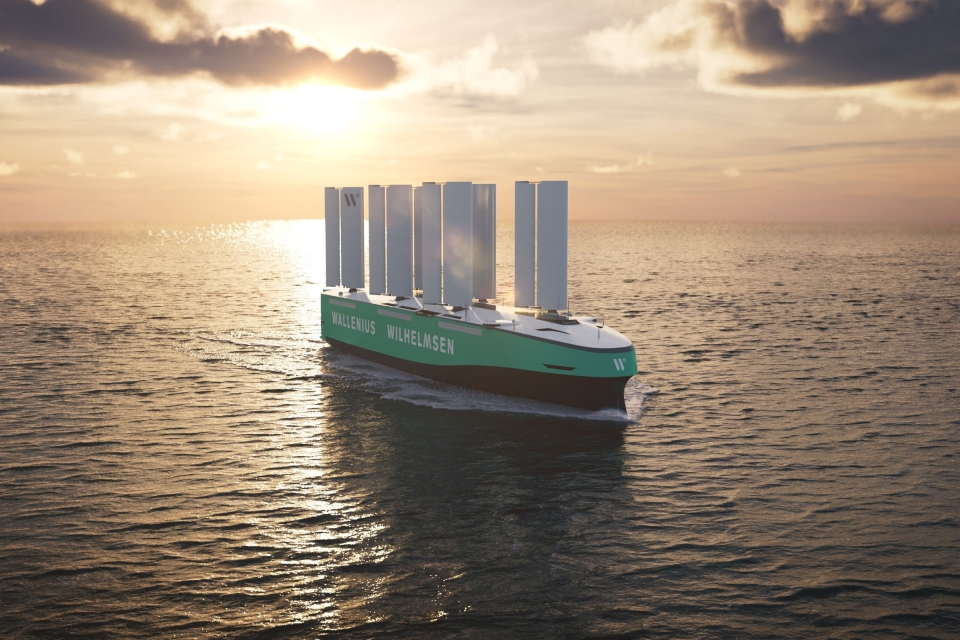Wallenius Wilhelmsen and project partners have secured a Horizon Europe funding totalling EUR 9 million to support building a RoRo sailing vessel of the Oceanbird type. Over the next five years, all aspects of planning, building, and operating a wind-powered vessel, the Orcelle Wind, will be done.
‘The Horizon Europe EU funding shows the concept stood up to the scrutiny of the EU funding authorities and that they had the confidence to give it their support,’ says Roger Strevens, VP Global Sustainability at Wallenius Wilhelmsen.
The grant of EUR 9 million is divided between eleven partners – all bringing something unique to the table. Together, they represent a 360-degree perspective on wind propulsion – including weather routing, vessel design, supply chain orchestration and crew training to test rig installation on an existing vessel. The project’s scope is to make the Orcelle Wind ready for commercial trading.
Also read: VIDEO: Oceanbird car carrier changes wing design
Demonstration and data capture
The EU project is a solid opportunity to combine the investments needed for full-scale demonstration and data capture with advanced models and tools for wing propulsion vessels. Beyond the demonstrator’s vessel, the partners will use the models and tools to develop advanced conceptual designs and operational plans for multiple vessel types to apply the wing solution.
Also read: How Oceanbird plans to achieve a 90% reduction in emissions
Oceanbird concept
Orcelle Wind is a wind-powered pure car truck carrier, a type of deepsea roll-on, roll-off (RoRo) vessel. It will be 220 metres long and have a capacity for over 7000 cars, but will also be capable of carrying breakbulk and rolling equipment. Orcelle Wind is a crucial part of Wallenius Wilhelmsen’s fleet decarbonisation strategy and the ambition is for it to commence sailing in late 2026 or early 2027.
Orcelle Wind is the first vessel from the Oceanbird concept for primarily wind-powered vessels. The concept shows that it is theoretically possible to reduce emissions from vessels by up to ninety per cent if all emissions-influencing factors are aligned.
‘The Oceanbird concept was developed through a partnership approach,’ says Niclas Dahl, Managing Director at Oceanbird. ‘We have seen the strength of gathering people from different sectors and companies to cover all perspectives. By working together, we will bring the Orcelle Wind project to life – and by that – take a huge step towards truly sustainable shipping.’
Test rig installation
An important part of the Horizon Europe funding project is installing the wing sail test rig on an existing Wallenius Wilhelmsen vessel during mid-2024. Oceanbird and Wallenius Wilhelmsen will present the test rig installation in a webcast on January 26.
Partners in the EU Horizon funding programme are Wallenius Wilhelmsen, Wallenius Marine, AlfaWall Oceanbird (a 50/50 joint venture of Alfa Laval and Wallenius), Volvo Cars, StormGeo, Maritime CleanTech, DNV, RISE Maritime (part of the Research Institutes of Sweden), KTH Royal Institute of Technology, Ghent University, NTUA (engineering university in Athens).
Also read: Wallenius and Alfa Laval in joint venture to realise wind-powered Oceanbird








